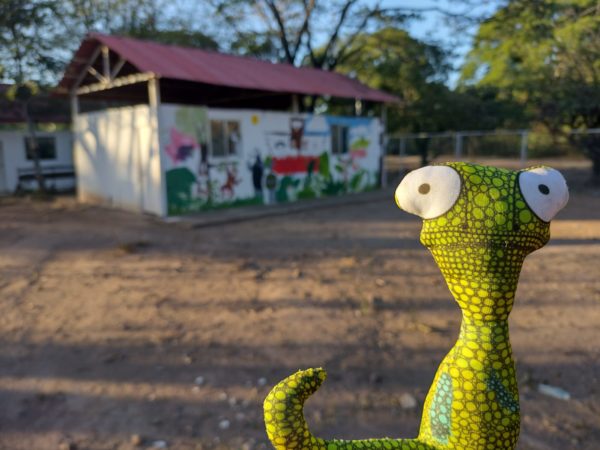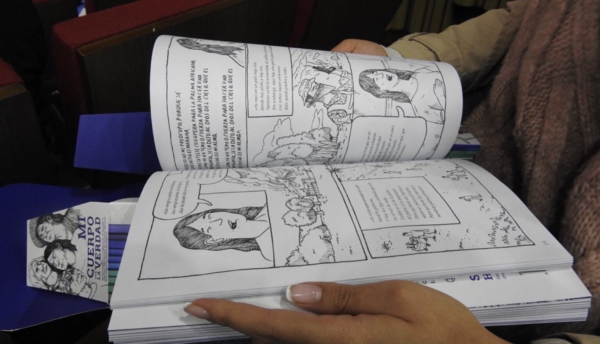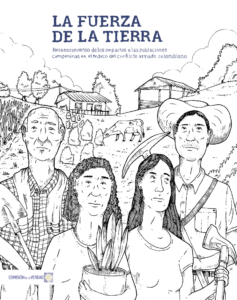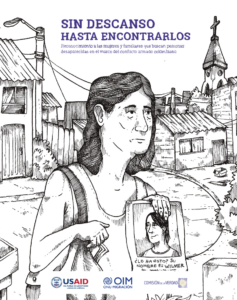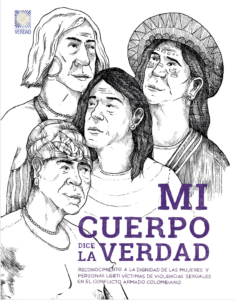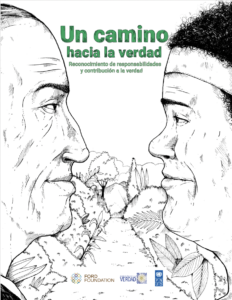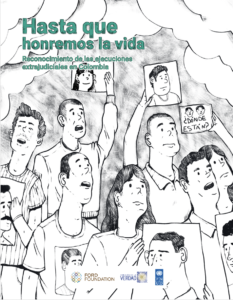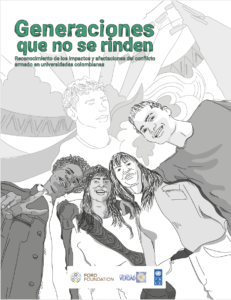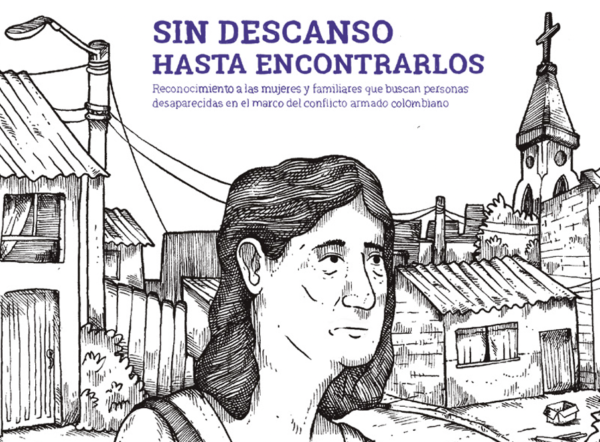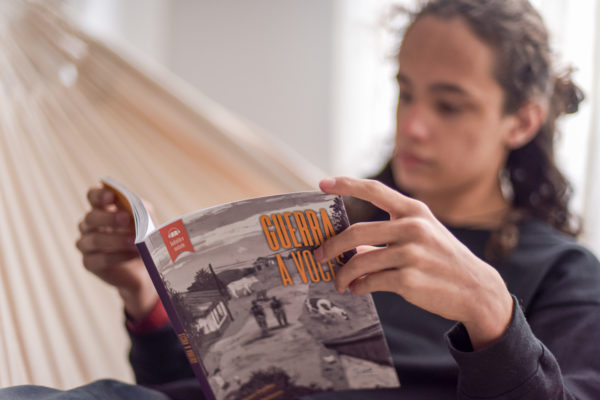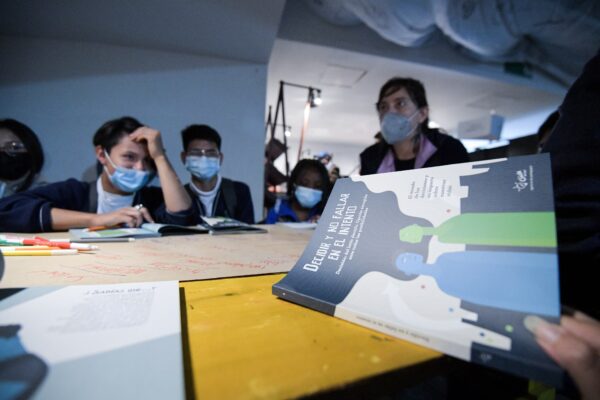The challenges of teaching and learning in Pondores, La Guajira
The formation process of La Aldea in Pondores, the Old Territorial Training and Reincorporation Space in La Guajira, has been carried out since 2020 by three migrant sisters and educational leaders: Betsabé, Yineth and Madeleine. In the last visit made by Click and UNICEF in December 2021, three more participants joined the sessions: Moises, 14, and two young people, 18 and 19 years old.
Specifically, five sessions were developed in which the first four stories of La Aldea were addressed: Stories for a world in transition. Additionally, an introduction was made for those who did not know the stories and a space was created to talk about pedagogy and socio-emotional learning; none of the participants had previously had training in pedagogy or didactics. But there was an additional surprise on our last visit to Pondores: 8 boys and girls between the ages of 6 and 10 joined the sessions. Although it was unplanned, the methodology was adapted so that they could be part of the process.
Our journey through Pondores was loaded with activities to expand emotional vocabulary, the exploration of emotions and art, life projects, social cartography and recognition of characters from La Aldea; as well as reflections on the infant brain, early childhood learning needs, conscious didactics, extracurricular learning places and the importance of the community in the educational process.
The participants expressed appreciation because they consider it essential to open extracurricular educational spaces, especially in this scenario in which boys and girls spend a lot of time alone because their caregivers have to go out to work all day in the fields. Added to this are a large number of out-of-school children and an early childhood that does not receive any type of care due to the inactivity of the Child Development Center (CDI) and the Care and Attention Unit (UCA). In addition to the show of gratitude, fears were expressed in relation to their work; these leaders by vocation worry that they are not doing their school reinforcement work well. Not having the opportunity to study a professional or technical career in Colombia, they seek more support in terms of development and strengthening of teaching skills. An additional problem: the lack of income associated with work, income necessary to support their children and families, which represents a risk for the continuity and sustainability of educational processes.
Girls and boys alone in houses with dangerous snakes that threaten their lives and health; lack of suitable and safe facilities; few recreational areas and little connectivity… These are just some of the challenges for a forgotten corner that is not prepared for a quality education. Despite this, women like Betsabé and her sisters stand for education and work daily to strengthen the participation of young people in processes of social change and in supporting children. The goal: to generate alliances that make it possible to bolster educational processes like La Aldea, and especially the accompaniment processes for guaranteeing quality education and the integral development of boys and girls in the community.





